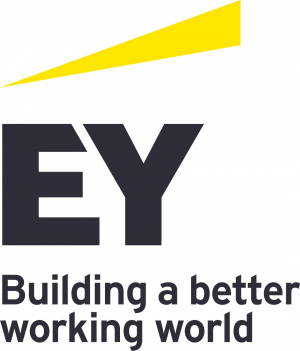The End of Intervention: What Now?
25.07.2017Company: Amcham
This spring all finance managers’ eyes were on the Czech National Bank (CNB) and its expected end of the currency intervention that, for the last four years, kept the Czech crown at a stable level of CZK 27 / EUR 1. Many managers who experienced the dramatic strengthening of the crown a decade ago and the losses that it brought to many a company did their best to prevent a similar situation from happening again. Were they right?
For the moment it can be said that their caution didn’t really pay off. Three months after CNB ended its intervention on April 6th, the crown is volatile, but not as much as expected. We can only fantasize on why the crown is so stable. The exposure of speculative forces appears to be massive; they have been buying large amounts of Czech currency in the expectation of quick gains from a sudden strengthening. This is not happening. So they are now looking for a new strategy and reconsidering their level of gains. As soon as they withdraw and send a larger amount of crowns on the market, the crown will paradoxically most probably weaken again. On the other hand, long term, the macro-indicators will lead to a strengthening of the crown, which might compensate eventual sudden outbursts of currency release. This means that for the moment the crown is relatively stable and that its strengthening will occur in a longer period of time than a few months. Of course, we can still expect surprises, but in large this is the situation on the Czech market right now.
Winners or losers?
How about the companies that invested into currency hedging tools to prevent loses from an abrupt strengthening, you may ask. The banks that offered short-term currency hedging solutions had their target course within certain limits – for example they might have said that EUR 1 will stand at CZK 26 in a year and CZK 24.50 in two years. As the crown doesn’t strengthen as expected, the banking instruments companies bought to manage their currency risks prove now to be only a cost. They don’t meet their real purpose, at least for the time being. Even the CNB governor mentioned that the Czech crown development isn’t so dynamic as expected and, if it were more dynamic than a certain amount of orders / margins which they have defined, CNB would intervene.
Therefore, companies who did invest into currency hedging instruments can only take a deep breath and make peace with a new cost item on their books. On the other hand, companies that didn’t go for hedging instruments are saving costs. If the current currency development continues, it seems that it was maybe better doing nothing then buying a banking instrument for currency risk hedging.
CFOs on tiptoes
Does it mean that the CFOs of companies who did recommend protection against currency volatility were in the wrong? Not at all. It’s a bit like your extra car insurance: it’s great to have one even when you don’t go through an accident. Regretting the money spent on your insurance only because you never had an accident just doesn’t make sense. All you need to make sure is that the insurance cost is manageable and sustainable for your family budget.
This reality shows that it is more important than ever to have a CFO with a deep understanding of the currency market and of your business as a whole, who is able to take calculated risks and make decisions on expenditures that are manageable and sustainable for the company. Sometimes they will be right and sometimes wrong. The most important is to be right at the right time, and, when they are wrong, that the decision remains a cost that can be easily managed and written off by the company.
Real estate bubble burst ahead?
With this new understanding of the currency market, we can expect that for the rest of this year CNB will most probably follow its targets in terms of inflation, as the threats of deflation are not so serious anymore. The latest developments on the global markets, mainly the reduction in production of crude oil will only support the inflation target. CNB might also start to think about its volume of euro positions and how to manage it so it wouldn’t lead to losses. Another thing CNB might consider is the Czech real estate market, which is showing signs of over-heating. It might want to intensify its efforts to prevent a bubble burst and thus a systemic shock for the whole Czech economy. The conditions for new loans are already much more challenging than they used to be – 100% mortgage loans are almost impossible to obtain directly. Yet there is still a large potential for challenges. As long as the real estate market is showing potential for quite consistent returns, people will continue looking in this direction. We can only hope that CNB will do the right thing at the right time, and no shock of our own doing is looming ahead of the Czech economy.
Radoslav Petík
Finance Manager at Foxconn Global Services Division
Tags: Finance |







